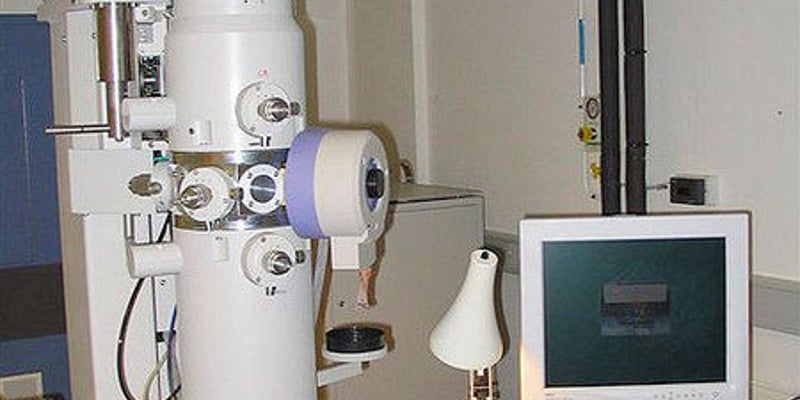Self-Examination: Asking the Hard Questions
Written by Joshua Travers
 Before Passover is an important time of year for a close self-examination. Why do we need to examine ourselves and what questions should we be asking?
Before Passover is an important time of year for a close self-examination. Why do we need to examine ourselves and what questions should we be asking?
God’s people have been called to a life of growth. During His time on earth, Christ demonstrated this through many parables, such as the parable of the talents (Matthew 25:14-30).
While the fact that we need to grow to become more like Christ is clear (Romans 8:29), the how of that growth is not always easy—and we can’t do it on our own. Thankfully, God has provided us certain tools that we can use in spiritual growth, such as Bible study, prayer and fasting.
But there is another tool of growth that we need to consider: self-examination, a specific, focused type of meditation.
Our need for self-examination
Self-examination can be every bit as hard and painful as fasting. Self-examination consists of taking an intensely close look at ourselves and comparing what we see to the standard of Jesus Christ. We don’t have to look too hard to find areas where we fall short of that standard.
In 2 Samuel 12:13 David’s response to being told of his sin by Nathan the prophet was to simply say: “I have sinned against the LORD.” It seems that David quickly examined himself and saw that it was all true and that it was not the only spiritual issue in his life. In Psalm 51 we see the heartfelt repentance that resulted from David’s self-examination.
Despite all of the pain that it can cause, Paul tells us that self-examination is necessary (1 Corinthians 11:28; 2 Corinthians 13:5; Galatians 6:4). One of the main reasons for self-examination is to identify areas in our lives that need changing. Or, as Paul says, we should “put off … the old man” (Ephesians 4:22). It is practically impossible to overcome a sin that you don’t know exists—and self-examination is how we discover those sins.
Self-examination is also a demonstration of how seriously we take the Passover service and Jesus Christ’s sacrifice (1 Corinthians 11:23-29). If we don’t, God may allow us to face trials that bring out our shortcomings.
The process of self-examination
How do we examine ourselves? The process can be very difficult because of our human tendency to deceive ourselves: “The heart is deceitful above all things, and desperately wicked; who can know it?” (Jeremiah 17:9). Self-examination requires God’s help throughout the whole process:
- God first gives us His law so that we know the definition of sin (1 John 3:4).
- God helps us to see the sin in our lives (Job 13:23; Romans 2:4) when we pray for correction (Jeremiah 10:23-24).
- When we seek to understand the way of righteousness, God helps us see the righteous conduct that must replace the sins (Matthew 5:6; Ephesians 4:24).
- God helps us to finally overcome our sins (1 John 5:4) when we ask for His help while “striving against sin” (Hebrews 12:4) ourselves.
Though God must actively be a part of this process, it is our responsibility to identify our sins by thorough self-examination.
Don’t take it easy
When we examine ourselves, it is important that we not whitewash our personal spiritual condition. For instance, we can tell ourselves that we have never murdered anybody, so we must be doing okay. Yet Christ reveals that the Sixth Commandment (“you shall not murder”) extends far deeper into our minds and lives than just simply the physical act of murder (Matthew 5:21-22).
It is important that we examine ourselves by analyzing whether we are breaking either the “letter” or “spirit” of God’s laws.
Christ criticized the Pharisees for putting the physical appearance of righteousness ahead of their responsibility to administer important spiritual aspects of God’s law. In Matthew 23:23 He said, “Woe to you, scribes and Pharisees, hypocrites! For you pay tithe of mint and anise and cumin, and have neglected the weightier matters of the law: justice and mercy and faith. These you ought to have done without leaving the others undone.”
The Pharisees were obeying God’s law in the letter, but they didn’t ask themselves the hard questions to find out what they were missing. Instead of examining themselves and making the necessary corrections, their correction came forcefully from Jesus Christ and has been preserved for our instruction.
Self-examination isn’t about making us feel good about ourselves or tearing ourselves down entirely. It’s about identifying our faults so that we can change and become more like God. In short, examination is about asking the hard questions.
Learn more about the changes we need to make in the section of Life, Hope & Truth about “Christian Conversion.”
Joshua Travers is a member of the Athens, Ohio, congregation of the Church of God, a Worldwide Association. He is also a student at Ohio University majoring in history and Spanish education.










